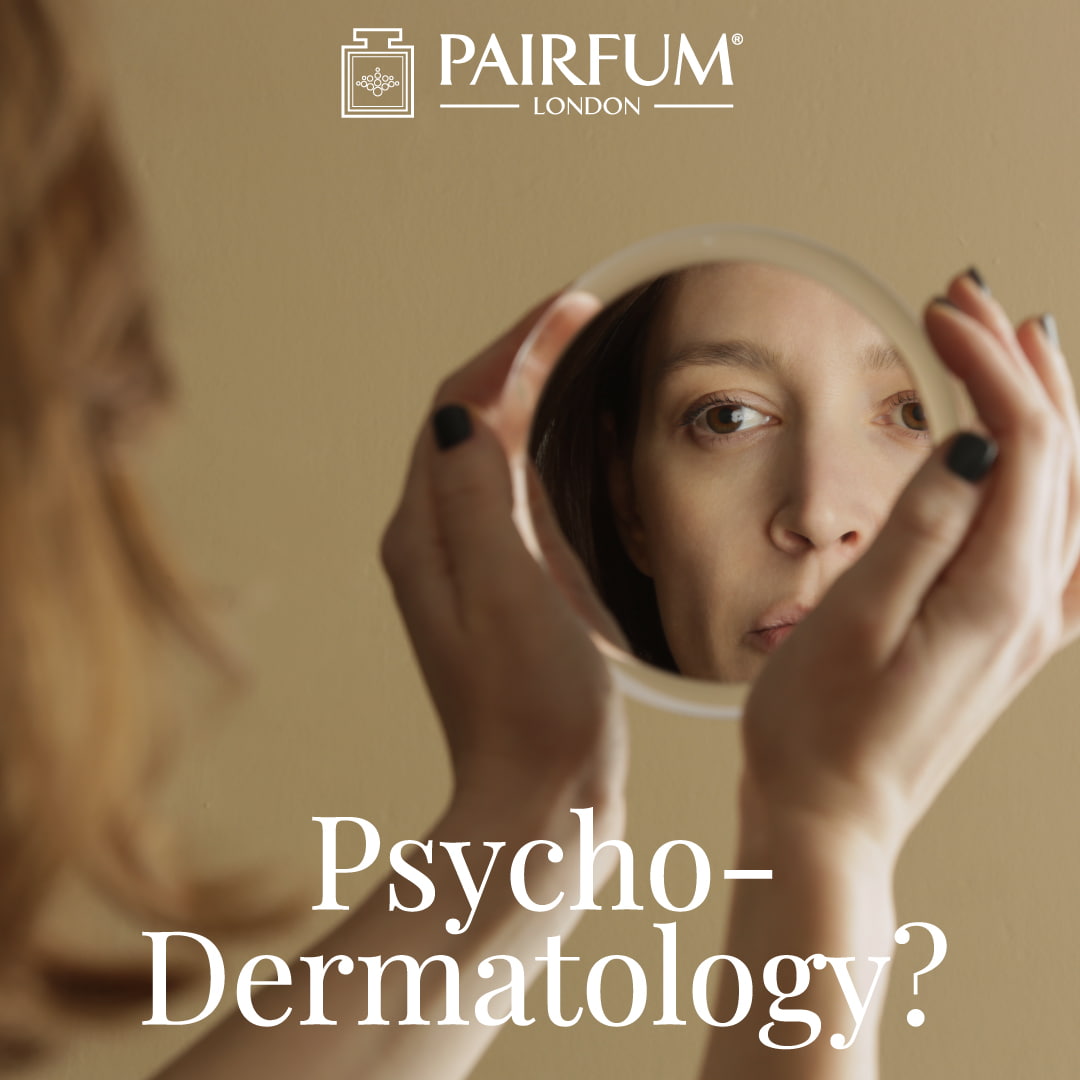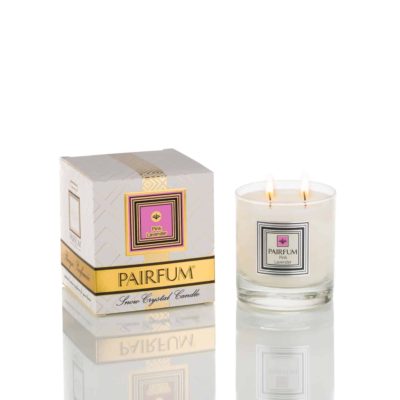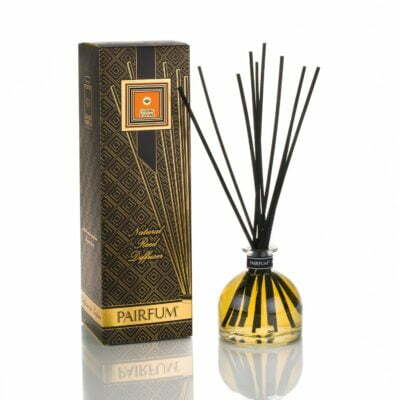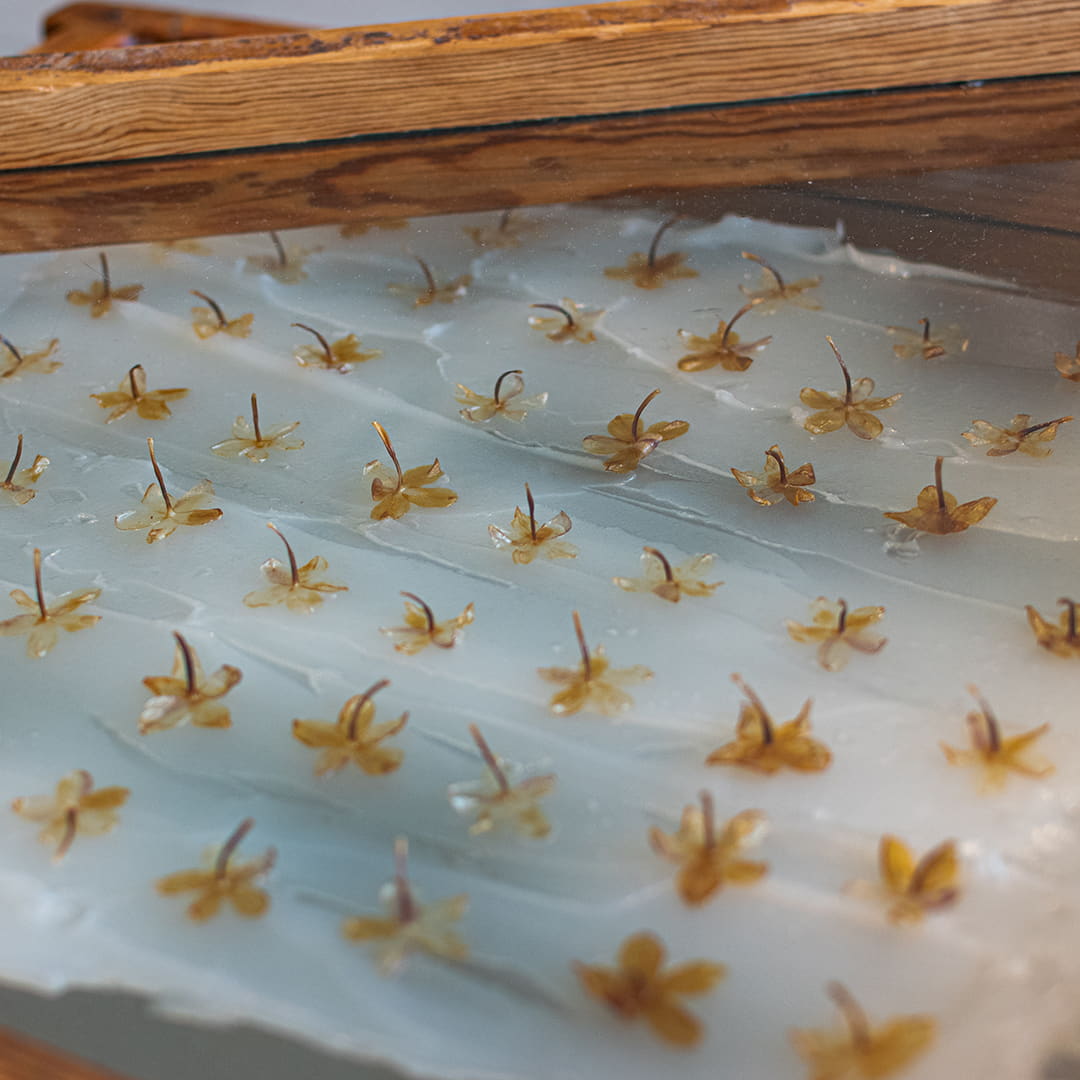A new, innovative trend within cosmetic ingredients being developed is in the direction of skin health and overall wellness, termed psychodermatology. Specifically, this trend focuses on the experience of using skincare products and how these products can positively impact our mood and overall mental health.
Keep in mind, our skin is our largest organ!
What Is Psychodermatology?
Psychodermatology is the study of the relationship between the skin and the mind. It is a relatively new field of study, but there is growing evidence to suggest that there is a strong connection between the two.
For example, studies have shown that people with mental health conditions such as anxiety and depression are more likely to develop skin conditions such as acne, eczema, and psoriasis. Conversely, people with skin conditions are more likely to experience anxiety and depression.
This suggests that there is a bidirectional relationship between the skin and the mind. The skin can affect the mind, and the mind can affect the skin.
Why Is This Trend Emerging?
There are a number of reasons why the trend of psychodermatology is emerging. One reason is that there is a growing awareness of the importance of mental health. People are more open to talking about their mental health challenges, and they are more likely to seek help.
Another reason is that there is a growing body of research on the link between the skin and the mind. This research is helping to raise awareness of the issue and to develop new treatments for skin conditions that are associated with mental health challenges.

How Does This Trend Materialise?
1. Sensorial Experience
The first aspect of focus is the sensorial experience of applying the product to the skin.
Consumers are seeing positive impacts on their mood during application and when evaluating the afterfeel and performance of these products. When skincare products leave the skin feeling hydrated, soothed, and soft, it has a positive impact on the user’s mental health. Ingredients are being developed and appearing in the first products with an improved sensorial experience and ‘application enjoyment’.
2. Mental Health
Beyond the initial experience, this trend shows how skincare products, particularly those that treat skincare imperfections and conditions, can offer true mental health benefits. By using products that are beneficial to the skin’s overall health and appearance, stressors that have negative psychological effects are reduced, helping to improve overall self-esteem and confidence.
New multifunctional ingredients are coming to the market that offer skin health benefits such as hydration, makeup removal, moisture retention, and healthy shine, all while being naturally derived. These benefits are being utilized in new products that:
- thoroughly cleanse the skin,
- products used during slugging to retain a higher level of actives and moisture, and
- in products that leave behind a healthy glow and shine.
These benefits can help to improve the appearance of the skin and can help to improve the consumers’ overall confidence and experience with the products.
Here are a few example of skin care ingredients that align with this trend
3. Ingredient & Product Examples
There are a number of skin care ingredients that have been shown to have benefits for mental health. These include:
- L-theanine: This amino acid is found in green tea and has been shown to reduce anxiety and improve mood.
- GABA: This neurotransmitter is known to have calming effects. It can be found in supplements or in certain skin care products.
- Aloe vera: This plant has been shown to have anti-inflammatory and wound-healing properties. It can also help to reduce stress and anxiety.
- Chamomile: This herb has been used for centuries to soothe the skin and promote relaxation. It can be found in teas, lotions, and essential oils.
- Lavender: This essential oil is known for its calming and relaxing properties. It can be used in a diffuser or added to a bath.
Examples of product types & features that align with this trend
There are a number of product types and features that are designed to address the mind-skin connection. These include:
- Products that are fragrance-free or lightly fragranced: Strong fragrances can irritate the skin and trigger anxiety or headaches.
- Products that are calming and relaxing: These products may contain ingredients such as lavender, chamomile, or L-theanine.
- Products that are designed to be used in a spa-like setting: This can help to create a relaxing and de-stressing environment.
- Products that are personalized to the individual: This can help to ensure that the product is effective and that it does not trigger any negative reactions.

The Implications For Perfumes?
The trend of psychodermatology has implications for the perfume industry.
Fragrance has long been known for its aromatherapeutic and psychological benefits.
Perfumes can have a powerful effect on the mind and emotions. They can be used to create a sense of calm, relaxation, or excitement.
Equally, wearing a perfume has a significant impact on our general feeling of wellbeing.
As more people become aware of the mind-skin connection, there is a growing demand for perfumes that are designed to promote mental well-being. Perfumers are now incorporating ingredients such as lavender, chamomile, and L-theanine into their fragrances.
How this new trend should be applied to perfumes?
When choosing a perfume, it is important to consider the ingredients and the fragrance profile. Some ingredients, such as strong citrus scents, can be stimulating and may not be suitable for people with anxiety or stress.
Fragrances that are calming and relaxing, such as lavender and chamomile, are often a better choice for people with mental health challenges.
It is also important to become aware when choosing a fragrance what its impact is on our general feeling of wellbeing. Do you enjoy it and that makes you feel good?
For example and with this in mind, we should buy perfume differently, rather than ‘on a hop’ when we sprint through the Duty Free.
Instead, we should ‘live’ with a perfume before we buy it:
- we should experience it over time and on our skin,
- in our own scent neutral home environment, and
- throughout a week during a variety of activities, e.g. sports, work/home, socialising, travelling, …
In this context, we highly recommend ‘Discovery Boxes’ or ‘Fragrance Libraries’. In particular, our own company’s “Perfume Experience Box” embraces this approach by offering 12 x Eau de Parfum Intense together with smelling strips. Each spray vial contain enough perfume to thoroughly experience the fragrance for 2 weeks.
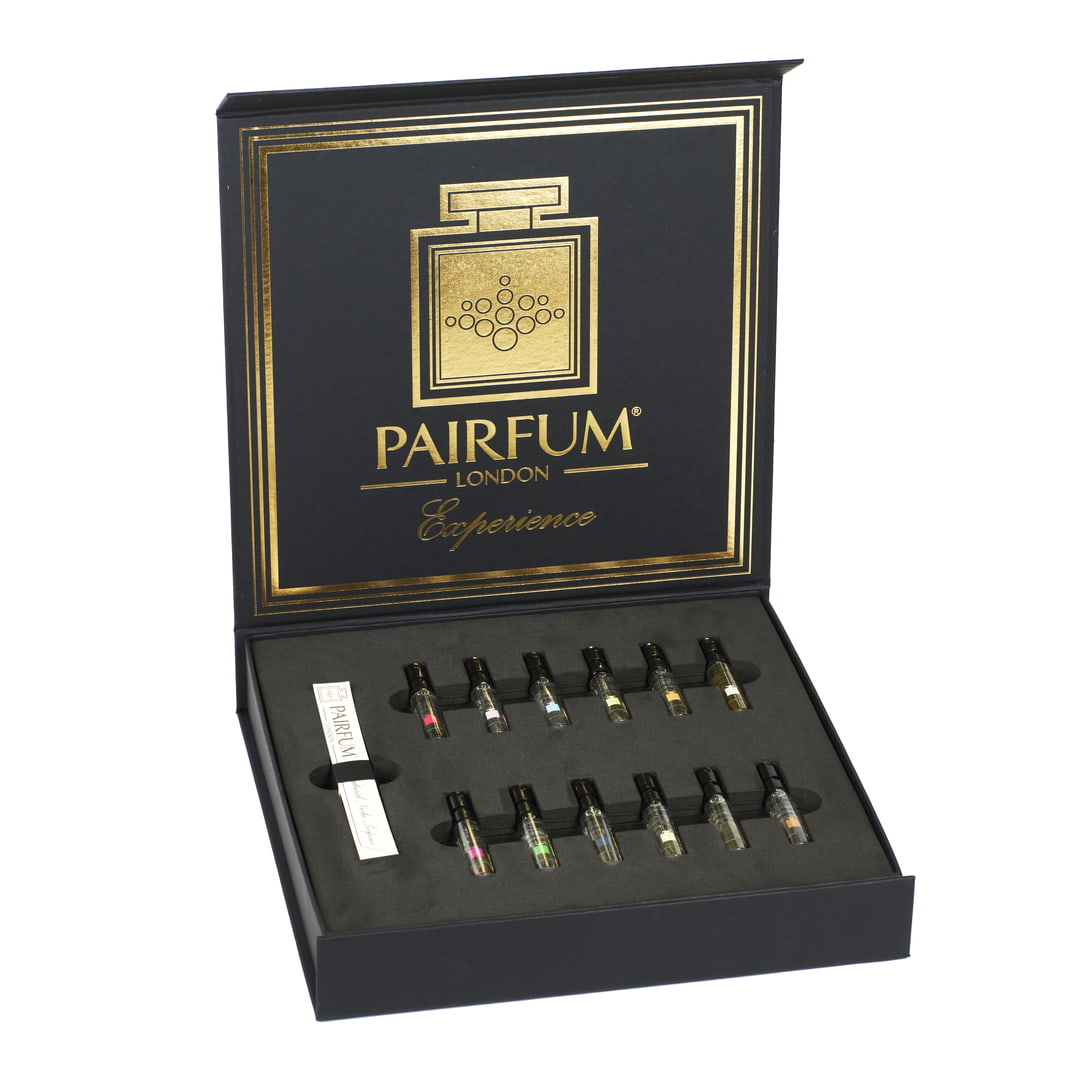
How Should This Trend Be Applied When Choosing Skincare Products?
The same principles apply when choosing skincare products.
Our recommendation is again to discover products through subscription or discovery boxes. It allows to trial a variety of products from the comfort of your own home, on your skin over time and throughout a typical day.
Depending on your circumstances, you may choose products that are fragrance-free or lightly fragranced or ones that do not contain any ingredients that you know will irritate your skin.
Alternatively, products that are designed to be calming and relaxing, such as those that contain lavender or chamomile, can be a good choice for people with mental health challenges.
Equally, it important to choose products that you enjoy using and that make you feel good.
Conclusion:
The trend of psychodermatology is still emerging, but it is clear that there is a growing connection between the skin and the mind. This trend has implications for the perfume and skincare industries, as well as for individuals who are looking for ways to improve their mental health.
By choosing products that are designed to be calming and relaxing, and by avoiding products that contain irritating ingredients, you can help to improve your mental health and overall well-being.
In addition to the tips mentioned above, there are a few other things you can do to promote mental health and skin health:
- Get enough sleep. When you’re well-rested, your skin has a chance to heal and repair itself.
- Eat a healthy diet. Eating plenty of fruits, vegetables, and whole grains can help to improve your overall health and well-being.
- Exercise regularly. Exercise releases endorphins, which have mood-boosting effects.
- Manage stress. Stress can trigger skin conditions and worsen mental health challenges. Find healthy ways to manage stress, such as yoga, meditation, or spending time in nature.
By taking care of your mental and skin health, you can improve your overall quality of life.
Here are some additional things to keep in mind:
- The mind-skin connection is complex and not fully understood. More research is needed to better understand how the two systems interact.
- The effects of psychodermatology products can vary from person to person. It is important to experiment with different products to find what works best for you.
- If you have a skin condition or mental health challenge, it is important to see a doctor or mental health professional. They can help you to develop a treatment plan that is right for you.
The trend of psychodermatology is still in its early stages, but it is a promising development. By understanding the mind-skin connection, we can develop new treatments for skin conditions and improve mental health outcomes.

